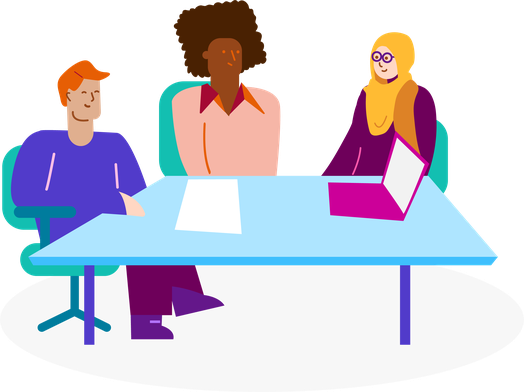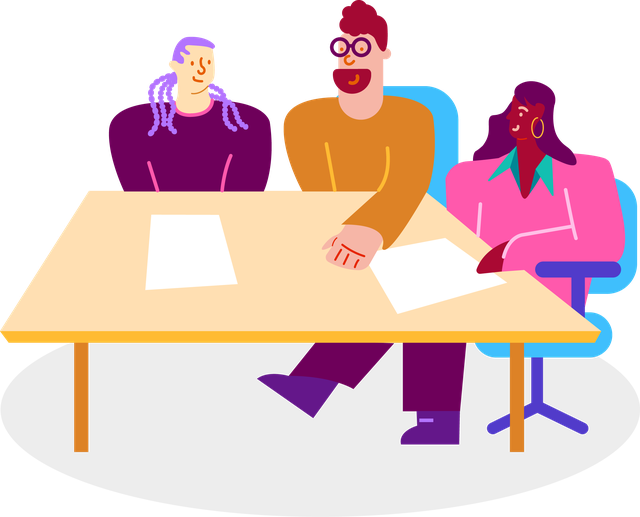At Homeless Link we are delivering a strategy and workplan to improve equity, diversity and inclusion across all our work. This acts as our commitment to change across all aspects of our organisation.
To find out about the work and progress we've made since 2021, please read on.
Our governance
At Homeless Link we believe we cannot achieve our vision, mission and strategy without also addressing equalities, diversity and inclusion. Our goals are to recognise and value difference and redress inequality and disadvantage. Our commitment to our EDI Strategy starts as the top. Our Board approved our EDI strategy and actively monitors and challenges our progress each quarter.
Since adopting our strategy we have introduced EDI monitoring across a range of characteristics and ensured that we have actively sought to increase diversity within our trustee recruitment processes. We want a board of trustees with diverse backgrounds, experiences and skills, bringing different perspectives to the table and enhancing our governance and leadership.
Since taking this approach we have achieved gender balance and reduced the average age of the board. However we have more to do and in particular we are continuing to seek trustees from diverse ethnic backgrounds, disabled people and people with direct experience of homelessness.
Our Members
We are all on a journey to inclusion together, and it is important that we share our learning and best practice.
Our members are the organisations that work on homelessness across England. We support them to become more inclusive in their own work.
In our Membership Survey, 71% of our members agreed that Homeless Link plays an important role in pushing forward organisational development in the sector, including in EDI related areas.
As part of our Leadership Support programme we have developed an EDI Maturity Self-Assessment Tool. Following a webinar we ran on EDI in Leadership that promoted the creation of a culture of inclusion, participants on the leadership programme suggested Homeless Link should create this tool to help homelessness services see how they can improve on EDI.
We have an internal cultural calendar, and we publish religious and cultural guidance around events, which we share with our members to help create and encourage inclusive workplaces.
We produce many materials about running inclusive services . We have particular expertise in women's homelessness and on youth homelessness.
We have acquired funding from the Department for Levelling Up Housing and Communities, to build the capacity of the homelessness sector until 2025, by producing best practice materials and a key element of our work is promoting inclusion.
Our learning and development offer includes courses that support our members to ensure their staff have an understanding of EDI and the potential challenges faced by people from marginalised communities - particularly Black, Asian and marginalised ethnic groups, LGBTQIA+ community, and people with disabilities. We offer a full-day course on Equality, Diversity and Inclusion where frontline workers will develop their understanding and promote good practice around EDI in their service. We also offer unconscious bias training where we provide information needed to understand the concept, and how awareness and managing it will enhance their daily interactions to be more inclusive with clients, colleagues and in their personal lives.
Wider society
People facing homelessness are much more likely to come from diverse backgrounds and as a result they are more likely to face discrimination whilst they are homeless.
For example:
- Black households are 11 times more likely to be living in temporary accommodation than White households.
- Women are much more likely to be amongst the "hidden homeless" because of the immediate danger of rough sleeping.
- Almost 1 in 5 LGBTQIA+ people have experienced homelessness at some point in their lives
In addition to the work we do on meeting diverse needs, we have set up an internal Lived Experience working group. This seeks to gather information from the sector with the aim of creating a clear picture of lived experience work happening nationally through data, visual mapping and utilising external expertise to inform our approaches around policy and practice.
Through our work in Government and Society, Homeless Link works to change policies at national and local level with a inclusive lens. In particular, our work on non-UK nationals frequently has to challenge attitudes that are traditionally discriminatory.
There is always more to be done...
We acknowledge that the role Homeless Link plays is only one small part of the system. However, we believe that we have a responsibility to use whatever influence we have to contribute to a fairer and more inclusive wider society.


